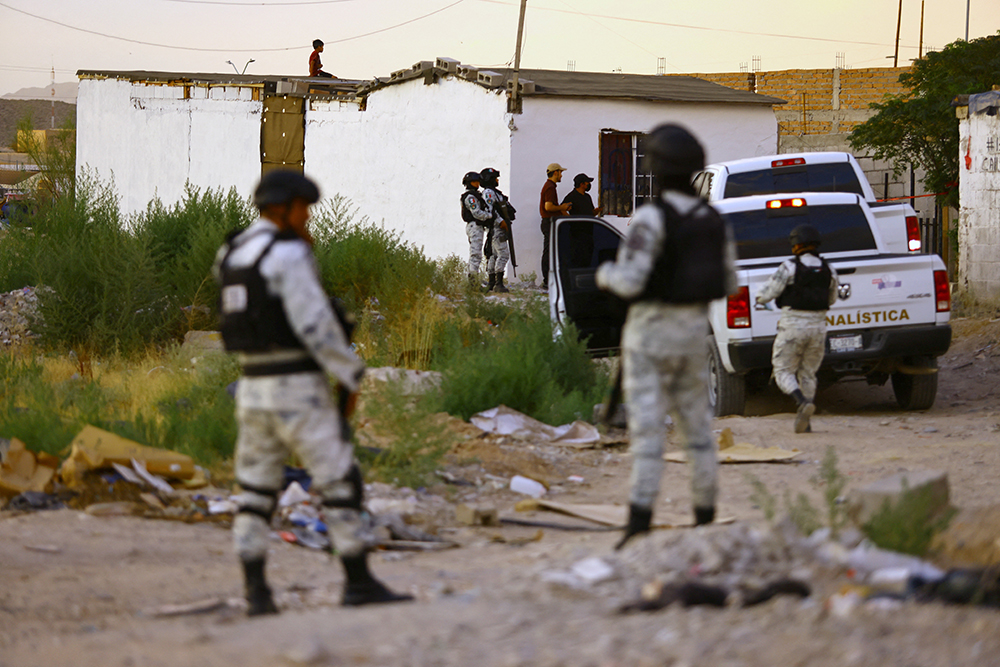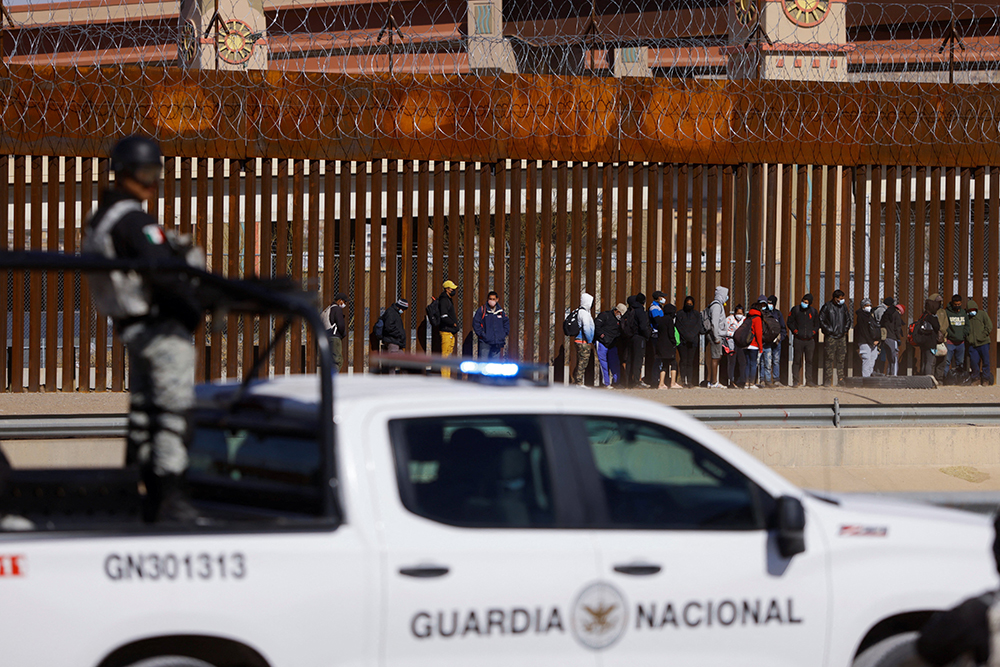
By Kate Scanlon
WASHINGTON (OSV News) — Campaign rhetoric often offers simple solutions to complex problems of drug trafficking and migration, an immigration policy expert told OSV News, with a notable example taking place at the recent first Republican primary debate of the 2024 presidential election cycle.
Eight Republican candidates participated Aug. 23 in the Republican National Committee’s first debate of their party’s presidential primary process, held in Milwaukee and hosted by Fox News. Among them was Florida Gov. Ron DeSantis, who suggested at that event that he would support sending U.S. special forces over the border into Mexico to take out fentanyl labs and other drug cartel operations.
“And I will do it on day one,” he said.
Julia Young, a historian of migration, Mexico and Latin America, and Catholicism at The Catholic University of America in Washington, told OSV News that such campaign promises “are very typical of politicians who speak about complex issues such as immigration, U.S.-Mexico relations and narco-trafficking during campaign season.”
“They generally offer simplistic, headline-grabbing solutions to very complex problems,” she said. “In this case, DeSantis seems to think that taking out cartels would be easy and a solution to the drug problem.”
Young said that even assuming a hypothetical President DeSantis “could get congressional approval and popular support to send troops into Mexico, attacking the cartels would be extremely complicated both politically and militarily.”
“It would certainly be considered an act of war by Mexicans, who are keenly aware of the many times that the United States has invaded that country in the past,” she said. “Given that there are multiple cartels, and they are are decentralized organizations whose operations are both hidden in very remote rural terrain as well as embedded in large cities and towns, it would also be a very challenging military exercise, impossible to carry out on ‘Day One.'”
DeSantis’ comment was met with condemnation, including from Democratic lawmakers.
“The Republicans cheering for war with Mexico are taking the United States down a dark, dangerous path,” Rep. Joaquin Castro, D-Texas, who represents a San Antonio-area district, wrote on X, formerly known as Twitter.
Mexican President Andrés Manuel López Obrador called DeSantis’ debate comment “cheap politicking.”
“Unfortunately, we have to get used to this bravado, because elections are coming up in the United States,” López Obrador said Aug. 28. “This Mr. DeSantis wants to pass (Donald) Trump to the right and that is why he appears more anti-immigrant than Trump, pure publicity, very common, cheap, cheap politicking.”
The rising rhetoric against Mexico came in a climate of escalating tensions between the two countries, especially as López Obrador has insisted that fentanyl is an American problem. He also has claimed Mexico’s “ancestral values” have spared it widespread addiction problems — though local observers disagree with the president’s rosy assessment.
Observers also noted that López Obrador has blasted some Republican politicians for their border rhetoric, but never criticized then-President Trump for his discourteous comments and actual attempt at building a border wall.

Advocates working with migrants also say the Mexican president has spoken favorably of supporting migrants, but routinely reaches deals with the U.S. for Mexico to act as a migration enforcer.
“It’s a lovely discourse, but it’s totally the opposite in practice, and the president of Mexico many times has spoken in public of respecting the rights of Mexicans in the United States, but they don’t respect the rights of foreigners in Mexico,” Scalabrinian Father Julio López, director of the Mexican bishops’ migrant ministry, told OSV News in May.
The Mexican population also holds mixed views of migrants, even though many Mexicans have emigrated over the decades. A survey published in August by Oxfam Mexico found 55% of respondents considered Mexican policies toward migrants “too permissive,” while 56% said the government should not provide humanitarian assistance.
Young also noted that “attacking cartels in Mexico does nothing about the fact that fentanyl is now largely produced in China and other countries, in addition to Mexico.”
“Disrupting the activities of the cartels in Mexico might slow, but certainly would not stop, the fentanyl trade,” Young said. “Finally, attacking Mexico does nothing about the fact that demand for narcotic drugs still exists in the United States. Without addressing demand, supply will just move to other places, but it won’t disappear.”
Young said “this not to say that politicians should try to do nothing about the fentanyl problem, which is both terrible and terrifying.”
“Rather, Catholics and all other voters should be aware that talk is cheap, and simple solutions can rarely address such complex problems,” she said.
Despite aggressive rhetoric on immigration and U.S.-Mexico relations, illegal immigration ranked lower than issues such as inflation, health care costs, partisan cooperation and gun violence in terms of voters’ top priorities, according to a June survey by the Pew Research center.
However, according to that same study, Republicans are more than twice as likely as Democrats to say that illegal immigration is a very big problem, 70% to 25%, respectively.
